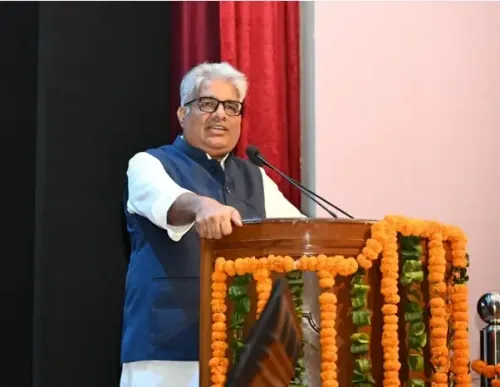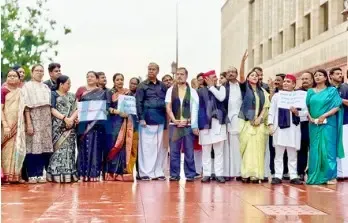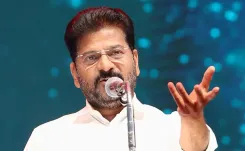Why Are Opposition Parties Criticizing CEC Gyanesh Kumar for Alleged Bias?

Synopsis
Key Takeaways
- Opposition Accusations: The ECI is accused of bias and failing its constitutional duties.
- Leadership Scrutiny: CEC Gyanesh Kumar's handling of allegations raised questions about the commission's integrity.
- Supreme Court Directive: The ECI must disclose voter data as mandated by the Supreme Court.
- Political Tensions: The conflict reflects broader issues of accountability in the electoral process.
- Campaign Impact: The controversy could significantly affect the opposition's election narrative.
New Delhi, Aug 18 (NationPress) Opposition factions have leveled accusations against the ECI for bias and for straying from its constitutional responsibilities. This criticism arose shortly after CEC Gyanesh Kumar reprimanded the Leader of the Opposition in the Lok Sabha, Rahul Gandhi, for making unfounded allegations regarding the commission's integrity and demanded an apology.
In a collective declaration, the opposition groups expressed that the ECI has completely failed to fulfill its constitutional obligation of maintaining a fair electoral environment.
“It is evident that the ECI is not guided by officials capable of ensuring a level playing field. Instead, it appears that those at the helm of the ECI are obstructing any genuine investigation into voter fraud and are intimidating those who question the ruling party. This is a serious accusation,” the statement indicated.
The pointed remarks, which question the impartiality of the Election Commission of India (ECI), were endorsed by representatives from various parties, including the Congress, Rashtriya Janata Dal, Samajwadi Party, Trinamool Congress, DMK, Shiv Sena (UBT), Nationalist Congress Party-SP, AAP, and the Left.
Referring to the 90-minute media session conducted by CEC Gyanesh Kumar on Sunday, the opposition expressed, “The CEC did not provide any clarification regarding the Supreme Court's ruling from August 14, 2025, which dismissed all arguments aimed at blocking the release of fundamental data concerning the 65 lakh voters removed in Bihar. The Supreme Court instructed them to disclose the names and justifications for these deletions.”
The opposition also criticized the CEC for failing to explain why the Bihar SIR was being executed in such a rushed, poorly planned, and improvised manner.
Addressing the inquiries made by Rahul Gandhi, the opposition noted, “The CEC failed to clarify the allegations of voter fraud from Mahadevapura, choosing instead to reiterate his legally questionable demand for the data to be placed under affidavit.”
Moreover, the CEC did not respond to pressing inquiries regarding the absence of investigations into the allegations of voter fraud, the statement highlighted.
During the previous day, CEC Gyanesh Kumar rebuked Gandhi for his incendiary claims of electoral fraud, insisting on either a formal affidavit substantiating his allegations or a public apology to the nation.
The Commissioner’s statements, delivered with the seriousness appropriate to his constitutional role, cast a long shadow over the opposition’s emerging campaign narrative.
This controversy began following Gandhi’s initiation of the ‘Voter Adhikar Yatra’ — a 1,300-kilometre march originating from Sasaram in Bihar, aimed at rallying public opinion against what he termed “vote chori” in the electoral rolls.









